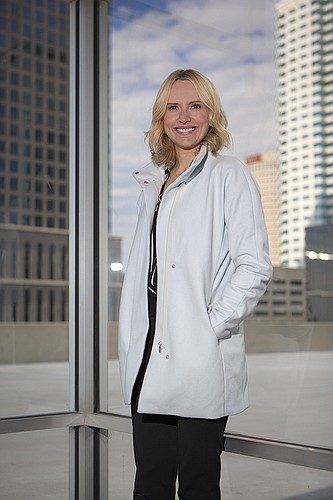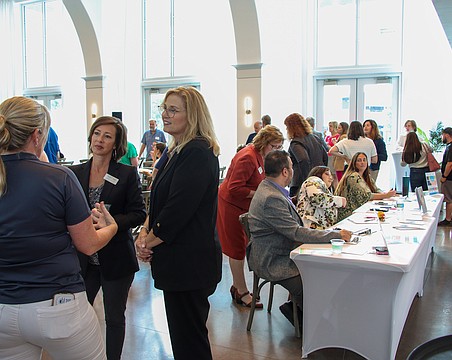Laura Myers never pictured herself specializing in continence. But now, she embraces her self-proclaimed title of “pee pee queen.”
Myers is a territory manager for Coloplast, a $2 billion company based in Denmark that sells medical devices for sensitive issues. Myers, based in Tampa, manages the Florida territory covering St. Petersburg, Tampa, Gainesville, Lake City, Jacksonville, Vero Beach and Orlando, selling catheters to suppliers and pitching the products to urology nurses. Catheters help people who are unable to drain urine from their body due to a spinal cord injury or because the communication between their brain and bladder has been cut off. Myers works with around 15 suppliers and 100 urology offices.
“When you speak to the average person about what I do, they are dumfounded,” Myers says. “In reality, it's a phenomenal position to have, even though no one knows.” And after starting with the company in 2012, in 2013 she was named one of the top two performers in the Continence division of 30 sales reps.
Myers says Coloplast makes it easy to sell its products. Its spends more than double its main competitors on research and development of new products.
Because of this, the company offers many types of catheters that are used in different ways and in different situations. Although these different types can improve a patient's quality of life, Myer says that's the most challenging part of her job — to educate practices to write down the product name on the script.
As a manufacturer's representative, Myers says she spends most of her time emailing and calling suppliers to make sure that the patients in her territory are taken care of. The suppliers ship direct to the patient, fulfilling orders and billing insurance.
But she also spends a fair amount of time talking to clinicians. It can be a challenge to get people to sit down and listen to a spiel about urethras, Myers says. Her audience is mostly nurses, who typically don't have time to slow down for a meeting during rounds. So she does two things: she hosts lunch-and-learns, to try to catch people over the lunch break and entice them to hear her out, and she tries to keep them engaged via humor.
It's necessary to read the audience, she adds. If they are uncomfortable, you make a joke. If they are not interested, you start asking questions to figure out what they're interested in, she adds. It's a fine balance of getting info from the nurses to know what they want to hear about and providing information to educate them on the products, while at the same time tailoring it to their needs so they aren't overloaded.
When Myers visits hospitals, she'll pull out a bag of chocolate and a penis model and sizer. “The nurses all laugh and can't believe this is what I do for a living,” she says. So Myers starts with sarcasm. “I know you're so excited to talk about urethras ... I'm your girl. I'm the pee pee queen,” she says. Joking usually tends to break the ice, Myers says.
One other tactic she uses that is a bit different from some competitors is telling the clinicians that it is OK if they are more comfortable using her competitor's product, as long as they are aware of her product and educated enough to determine which catheter is best for each patient. “It doesn't matter how fancy the product is, if the patient doesn't use it, it won't work,” Myers says.
Sales Tips
Put the end userS first and think about their needs. This is true even if you aren't selling directly to the end user, in this case the patient. If you communicate to your buyers how it will help the end user, it will sell the product.
Consider the provider's needs. For Myers, this is the clinician. Try to figure out what will make life easier for them, and help them accomplish that.
Communication with suppliers is key. “Capitalizing on partnerships makes a huge difference for managing large territories,” Myers says. Communicating often is necessary to understand what's happening in the territory, to make sure they have plenty of samples and are educated to have a discussion on your products.






